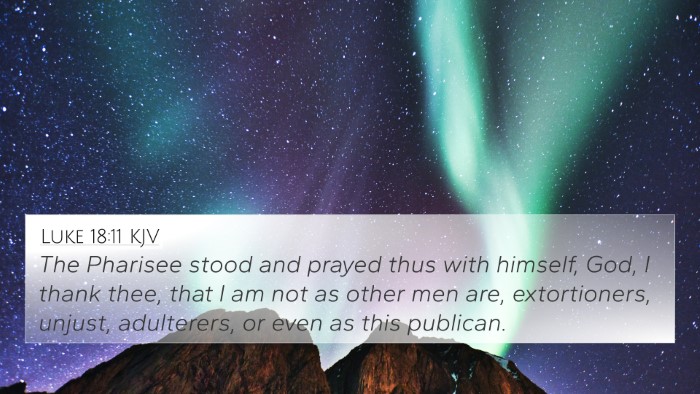Understanding Mark 10:31
Bible Verse: Mark 10:31 - "But many that are first shall be last; and the last first."
Summary of Meaning
This verse offers profound insights into the values of God's Kingdom and serves to invert the earthly hierarchy. Mark 10:31 presents a counter-cultural perspective, emphasizing that human standards of success and importance are not aligned with those of God. It articulates the theme of reversal, where societal expectations are turned upside down.
Insights from Commentaries
The explanations from notable public domain commentators offer diverse views on the implications of this passage:
- Matthew Henry: Henry focuses on the reversal of worldly values in the context of God’s Kingdom. He explains that those who attain worldly power and prestige may find themselves humbled, while the seemingly insignificant will be exalted in God’s eyes. This serves as a reminder that spiritual wealth often contrasts with material abundance.
- Albert Barnes: Barnes interprets this verse as a call to humility and suggests that expectations of prominence based on human achievements will be overturned. He emphasizes that true greatness, in God’s view, is rooted in selflessness and service, paralleling this notion with the teachings of Jesus throughout the Gospels.
- Adam Clarke: Clarke posits that the statement reflects the nature of God's justice and economy, suggesting that all who follow the path of Christ—those considered ‘last’ in the world—will find their worth recognized and rewarded in the afterlife. He connects this to the broader principles of sacrifice and discipleship that Jesus teaches.
Thematic Connections and Cross-References
Mark 10:31 is rich with interconnected themes found throughout the Bible. The following cross-references illustrate related concepts that can enhance understanding:
- Matthew 19:30 - Jesus states similarly that many who are first will be last, reinforcing the idea of divine reversal.
- Luke 13:30 - This parallel passage echoes the same sentiment, establishing a consistent teaching among the Gospels.
- James 4:10 - This verse encourages humility, resonating with the call to lower oneself to be exalted by God.
- 1 Peter 5:5 - Peter urges younger believers to submit to the elder, emphasizing humility and the promise of exaltation.
- Philippians 2:7-8 - Christ’s humility and servitude illustrate the ultimate example of being last to achieve greatness.
- Matthew 5:3 - The Beatitudes introduce blessed are the poor in spirit, which reflects the characteristics of those deemed ‘last’ in society.
- Luke 1:52 - Mary's song articulates God’s action of bringing down the mighty and exalting the humble.
Connecting Themes and Comparative Analysis
When examining Mark 10:31, one can identify notable connections to other scriptural texts. Through a thematic Bible verse connection approach, the following observations emerge:
- Historical Context: This teaching emerged amidst Jesus’ interactions with His disciples, highlighting their misunderstandings about power and leadership.
- Long-Term Implications: Understanding the societal structures of the time allows for a deeper appreciation of the radical nature of Jesus’ message.
- Paradox of the Kingdom: Each cross-reference presents the paradox that those who aspire to greatness often overlook the truths that the ‘last’ will be first in God’s economy.
Conclusion
Mark 10:31 challenges believers to reassess their understanding of value and status in the Christian faith. Through cross-referencing related Bible verses, one can build a comprehensive picture of Christ's teachings around humility, service, and the expectations of God's Kingdom. This verse encourages spiritual reflection and serves as a guide to interpreting one's own life and priorities in light of scriptural truth.












